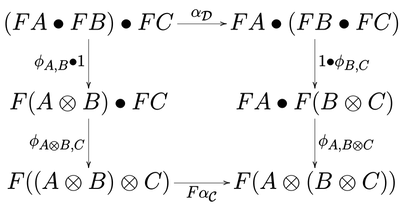Awareness Precipitates from Order Out Of Chaos
Under what circumstances does order emerge from chaos? Does it always present with stratification and interwoven hierarchical self-similarity? When do the fractal features begin to react to themselves, reflecting their own images back into themselves? This is what leads to higher levels of order in chaos. If chaotic systems yield order that compels some form of ergodicity to emerge, is it truly chaotic?
The Turing Network: A Thought Experiment for Quantum Computing
Imagine your standard Turing Machine, but something a bit different. Instead of maintaining program state in the a tape with discretized values, this Turing Network instead processes waveforms where state can be encoded in various ways, including in spectral transformations. And this is a network, not a simple machine, where state is distributed amongst various autonomous Turing Machines.
Divergents and Directional Antennae: Measurement and Inference
This categorical coherence looks for higher level patterns. It could identify the presence of diseases previously unknown, not because it's matching against a list of diseases and their progressions, but because it's identified unknown patterns of neurodegeneration in a patient. In addition to unknown disease progression, this could also identify the combination of drug-induced neurological damage or damage induced by the combination of diseases.
Education Goals 2016
Here's a list of things that are incredibly interesting and I couldn't live without learning. I'm hoping to learn plasma physics to get to the point where I can hang with people doing real research and maybe apply my creativity.
Divergents and Directional Antennae
I started thinking about directional antennae and reason about what kind of math would allow me to predict the shape of the energy distribution, first given idealized omnidirectional or directional antennae. And later, given the specific structure of a more realistic antenna, I hoped to identify some relationships that would allow computation of energy propagation and distribution.
Epistemology, Cognition and Category Theory: Directive Cognitive Expansion
Your rate of learning is a function of (1) everything you know (2) your ability to interrelate your knowledge to model new things (3) the proficiency of each base cognitive function and (4) your ability to coordinate those cognitive functions. Therefore, by improving on any of these four points, you will accelerate your rate of learning.
Epistemology, Cognition and Category Theory: A Model for the Mind
Data and metadata about functions and language in particular is likely found all over the brain. And information related to other faculties of the mind is likely similarly sharded all over the brain. This would help achieve dynamic behavior, as it would allow multiple regions of the brain to sort of map functionality together. But doing so would also contribute to efficiency and redundancy.
Epistemology, Cognition and Category Theory: An Overview
I love learning new things. I get to experience beginner's mind again and it gives me a chance to reflect on the process I use to learn. By actively observing beginner's mind, you can refamiliarize yourself with its nature, so that you might be able to partially apply this state of mind when you need it. By introspecting on this process, I hope to continually improve it. I try to approach new activities and skills from a multitude of perspectives and I like to examine the similarities between everything.
